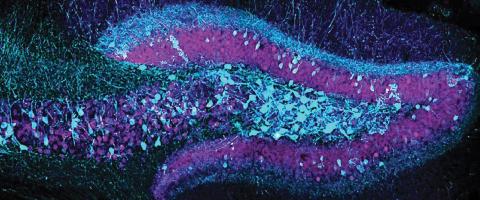
We are pleased to present you with the 2024 Leading Research Achievements by BBRF Grantees, Prize Winners & Scientific Council Members.
Read More
During the holiday season, people often find themselves feeling stressed and overwhelmed by a dizzying array of seasonal demands, including parties, shopping, baking, cleaning and entertaining. The holidays may also highlight family issues, conflicts, political differences, and loneliness.
Read More
Dr. Jeffrey Borenstein, BBRF’s CEO and President, talks with Dr. Daniel Pine of the NIMH.
Read More
We are pleased to present you with the 2023 Leading Research Achievements by BBRF Grantees, Prize Winners & Scientific Council Members.
Read More
Dr. Steve Ramirez is revealing where memories “live” in the brain, and explores how traumatic memories might be therapeutically modified.
Read More
We are pleased to present you with the 2022 Leading Research Achievements by BBRF Grantees, Prizewinners & Scientific Council Members.
Read More
A Q&A with Dr. Kimberly Carpenter of Duke University, who has conducted important research on preschoolers with overly sensitive senses—children who are intensely bothered by stimuli such as loud or high-pitched sounds, or the sensation of clothing rubbing on the skin. Her research has shown
Read More
Our PATHWAYS TO THE FUTURE story is about an unconventional approach to developing new psychiatric drugs. Based on an initiative by the National Institute of Mental Health, it’s called “Fast-Fail” and is designed to weed out the weakest drug candidates early in the process, to
Read More
Q&A with Dilip Jeste, M.D., on the role of wisdom in dealing with what he has called “an epidemic of loneliness and despair” in America.
Read More
The holiday season usually is a joyful time. Many families look forward to gathering with relatives and friends, exchanging gifts, and celebrating traditions. In a normal year, the holidays can even be a bit stressful.
Read More

